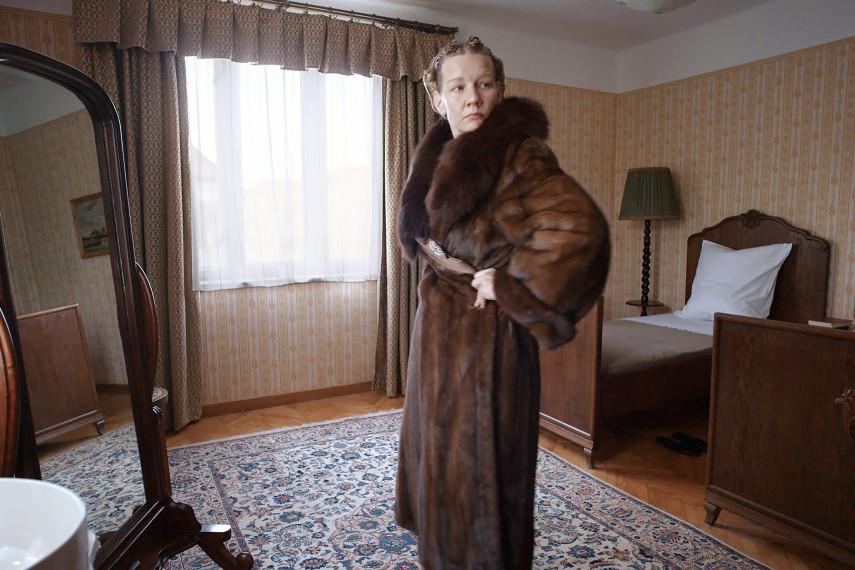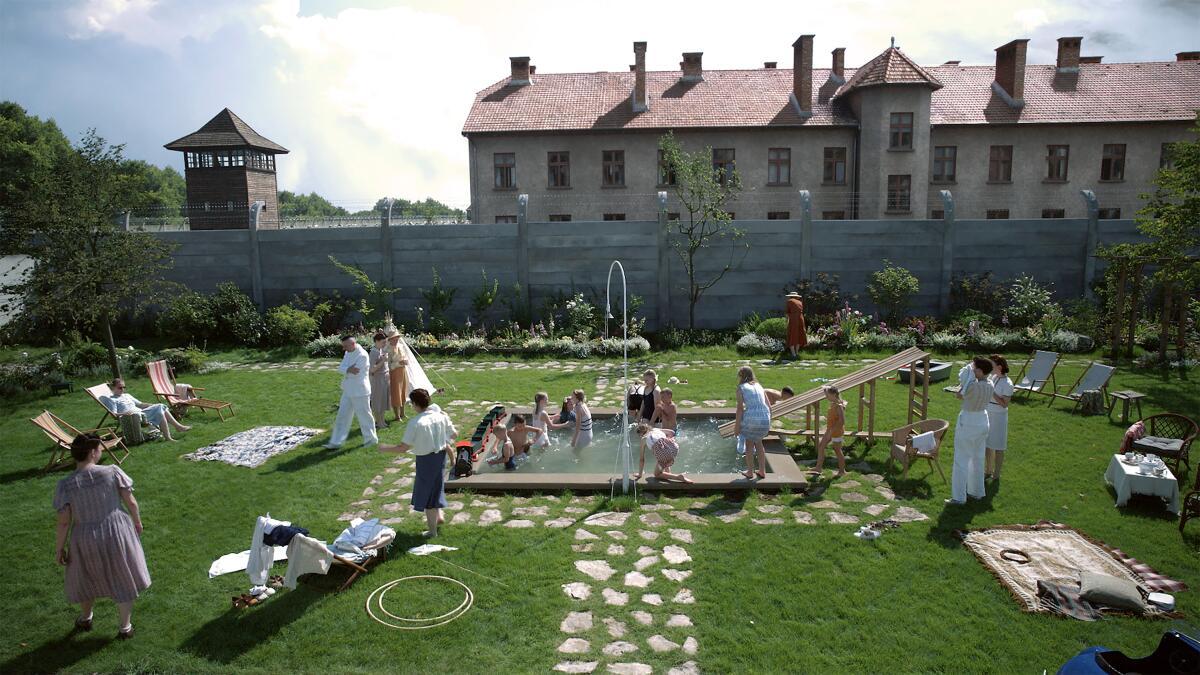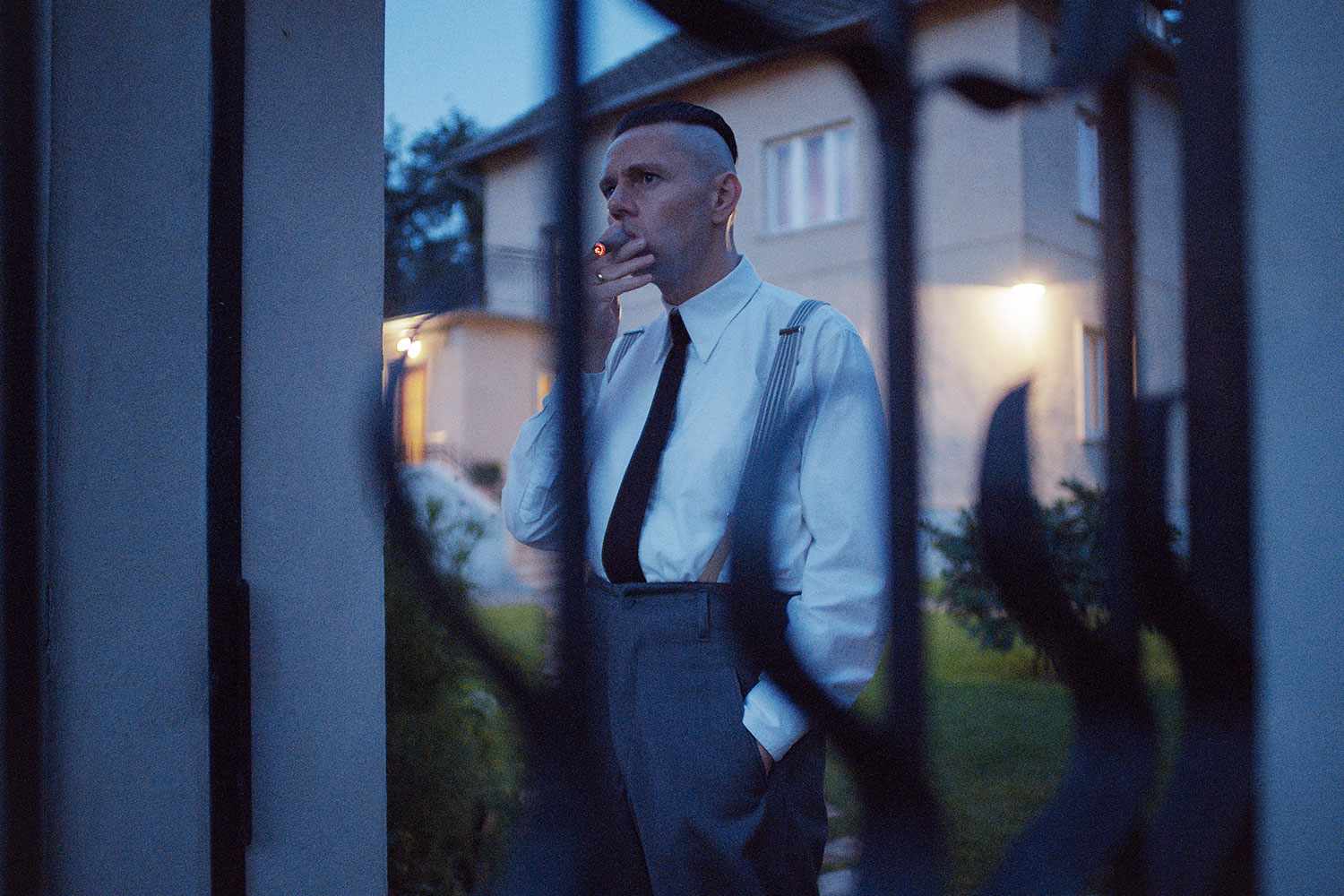The Zone of Interest is a powerful but haunting historical drama exploring the atrocities of the holocaust from an unusual perspective.
Making a film about the Holocaust is not an easy thing to do, for many reasons. First of all, there have been so many films about this topic in the past, it is challenging to find a new perspective or topic that has not already been discussed. The topic itself is also very difficult to discuss because of how horrible it was. The purpose of making a film is inherently to entertain your audience, and in reality there isn’t anything that should be entertaining about the Holocaust. It is one of the darkest moments in human history, and crafting a film with this in mind sets it off on a depressing note from the very beginning.
The Zone of Influence
Directed By: Jonathan Glazer
Written By: Jonathan Glazer
Starring: Christian Friedel, Sandra HullerRelease Date: December 15th, 2023
Thankfully we have talented filmmakers like Jonathan Glazer who aren’t just trying to make a film to make money, they are doing it because they have general interest in the topic and believe it has something meaningful to say that adds to our lives. Upon reading the Martin Amis novel Zone of Interest which told a fictional tale of Nazi’s inside a concentration camp, Glazer purchased the film rights. He used that novel as a basis, but decided to make it more historically accurate while maintaining a similar focus. He did extensive research to develop his concept, and worked with authorities to obtain the permissions required to film on location at historical sites to be as accurate as possible.
The Zone of Interest focuses on a man in charge of a concentration camp and his family. Rudolf Höss is a bit of a superstar when it comes to concentration camps. The Nazi regime is pleased with his efficiency and tactics, and the soldiers under his command hold him in high regard. His family benefits from his proficiency. They live in a large house with a lavish garden, servants, and luxuries available to very few people during this time. His wife Hedwig calls herself the ‘Queen of the concentration camp’, and relishes her position of high stature in the Nazi social standing.

Make no mistake, the family’s home is not as nice a place to live as Hedwig thinks it is. It is located just on the outside of the concentration camp, sharing one high wall. Relentlessly through the day, the family can hear screaming, gunshots, and the frightening roar of the ovens used to cremate the dead. Through it all, they live a normal life. They ignore the pain and suffering that is happening just a few feet away and instead focus on the pleasures it has afforded them. The children are oblivious to their involvement. The Nazis view it as their duty, and therefore a source of pride.
The film itself is less of a story arc than it is a glimpse into this one particular moment in time, at a terrible fulcrum of humanity. The film portrays the family’s life as shockingly normal. If the audience couldn’t hear, it would seem like a very nice place to live. The film never shows us what is over the wall. We don’t need to see it. The film is uncomfortable and unrelenting enough. Seeing these people try to ignore the harm they are causing is almost as painful as seeing that harm first hand. It shows us how terrible human beings can be, without actually needing to spell it out.
Rudolf Höss is so proficient in his work that he is promoted to oversee the operation of all of the concentration camps. Hedwig doesn’t want to leave. Rather than supporting her husband, she demands to be left here at the house with the children. It shows us exactly the type of person she is. Rather than have the opportunity to leave this terrible place, she wants to stay. In essence, she revels in the struggle the Nazis are inflicting, even if she doesn’t say anything. It gives her a sense of power, and by living here surrounded by it, she is reinforcing her position.

When Hedwig’s mother comes to visit, she is uncomfortable with the situation. She is unable to ignore the horrific noises permeating through the walls of the family’s house at all times. Hedwig doesn’t seem to understand her reservation, and simply ignores it. This, above anything, is what frightens her mother the most. She sees her daughter become this terrible person in a place of great power.
Despite having a large and tranquil garden full of brightly colored and beautiful plants, nothing is peaceful in this place. The children have become ignorant to it as well. Their lives are heavily influenced by the army. They play with the dental crowns of dead prisoners. The family gets first dibs on any valuables of interest surrendered by those in the camp. They don’t seem to mind where they came from.
Glazer opens the film with a harrowing blank space full of disconcerting noise. It sets the tone for what is going on just outside the frame of the picture for the duration. We are reminded of the terror, even as we view startlingly beautiful imagery. But even then the horror seems like it is gnawing on the edges. Over walls we see the smoke pouring into the soft blue skies from relentless cremation furnaces and see the tops of endless trains ferrying people into the camp by the thousands.
Despite the brightness of the picture, there is little hope. The film is as bleak as it can get, but it doesn’t use traditionally terrifying imagery to get there. Instead it is solemn, and lets the sound design bring in the emotional gut punch from the very beginning. It is a horror film with slow moving dread gradually taking over until suddenly it is suffocating. During a lavish party, Höss stands overlooking the proceedings from a balcony. He later admits to his wife that he wasn’t really paying attention to who was there, because he was imagining the best way to gas everyone.

The Zone of Interest is ultimately about our own complacency. It is about our animalistic instincts to react to other people’s struggles by first making sure we have all we need. It is about the hunger of selfishness, which has an infinite appetite. Höss’ laser focus is all about his duty. It is a way to provide for his family, at the expense of hundreds of thousands of others. We see moments where he recognizes the catastrophe of his work, and yet has learned to brush that feeling aside at all costs. He has to keep going.
The film, on the other hand, does not. Glazer keeps the runtime relatively short. Even then, the meditative plot allows ample time for reflection. The film’s greatest strength is how it frames such emotionally complicated situations. We see how these people, if you can call them that, manage to frame one of the greatest tragedies of all time into their triumph. We see them as broken, and we see the ease at which they fell into their condition. It is a harrowing warning to all of us. This is a powerful film that we won’t soon forget.

